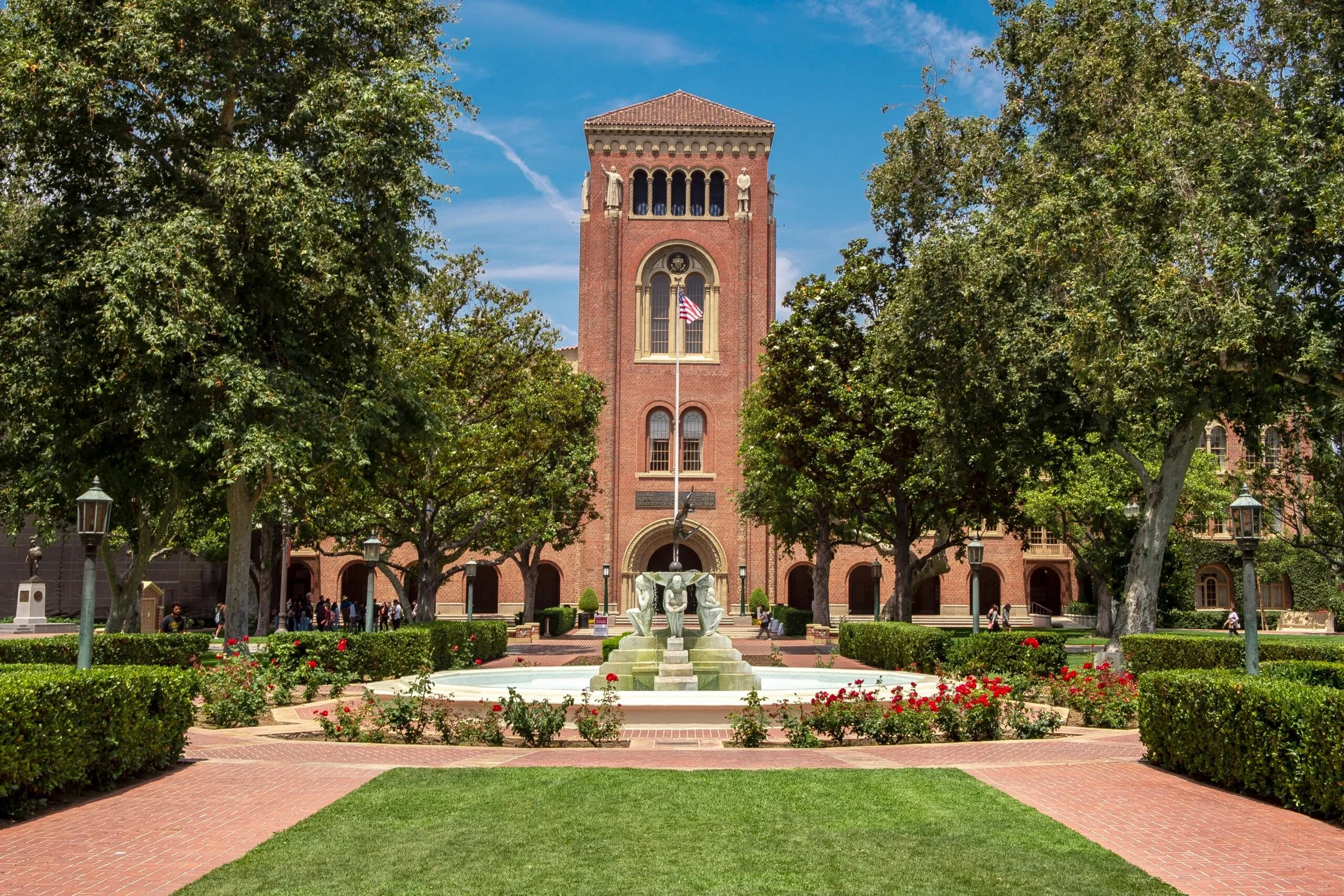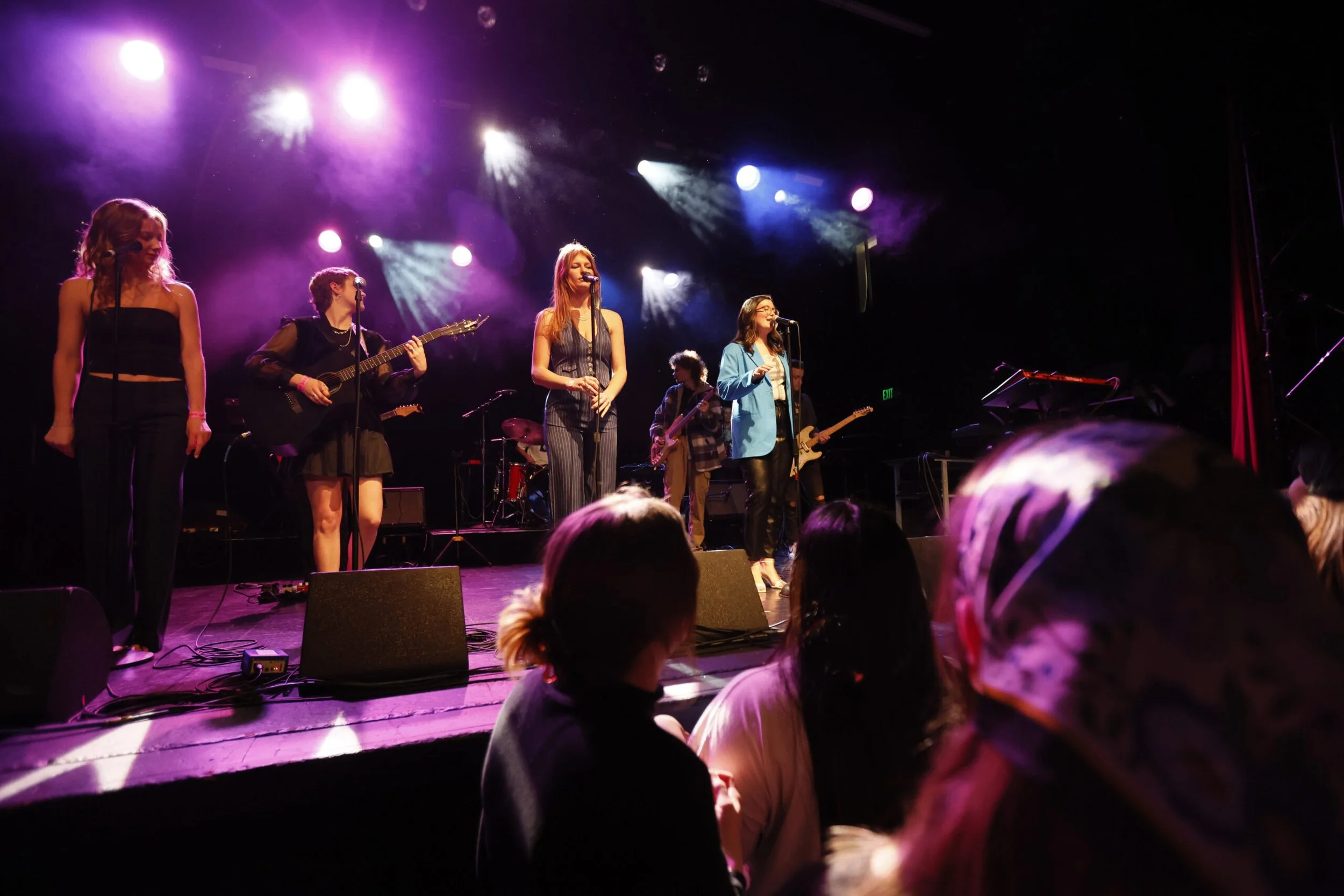My Favorite Classes I've Taken at USC as a Graduating Senior
photo credit: USC
by Lauren Liang ‘23
Here’s a roundup of my favorite courses I’ve taken at USC, as a (December) graduating cognitive science major.
DANC 183A – Ballet; 2 units, taught by Molly Bogunovic
photo credit: USC Kaufman School of Dance
If you’re looking for a class that will get you moving, want to live out your childhood dreams of being a dancer, or just want an excuse to add balletcore to your wardrobe, I highly recommend taking DANC 183A with Molly Bogunovic. Kaufman offers many elective courses for non-majors, many of which require no prior dance experience. DANC 183A is one of them. I haven’t taken a dance class since high school, so being able to get back into dance without the pressure to have perfect technique or be the best in class has been a great way to start my mornings and take my mind off my other responsibilities. While the class will likely push you physically, it won’t significantly add to your academic workload. There are six written reflections (around ~250 words) spread across the semester ranging from discussing your goals for the class to summarizing what you’ve learned about ballet history. Both the midterm and final are written, so you don’t have to worry about being an amazing dancer to get an A. The midterm is based on being familiar with ballet terminology, and the final is a 3-5 page written review of a dance performance.
One of the highlights of this course was participating in the Elective Experience, which is a showcase Kaufman holds every semester for students taking its elective courses. It’s not a requirement, so whether or not your particular section of DANC 183A participates in the Elective Experience depends on if the majority of your classmates want to participate. From what I’ve heard, classes participate more often than not. This semester, my class voted to dance to “Pink + White” by Frank Ocean. It was a great bonding experience for the class, and a fun opportunity if you want to perform in front of an audience.
Because this class is only 2 units, you can add it on top of the typical 16 unit course load (tuition covers up to 18 units without additional fees), without the stress of having 2 units more of papers/tests/problem sets to work on.
MPPM 120 – Popular Music Performance (non-major section); 2 units, taught by Timothy Thomas Kobza
photo credit: USC Thornton
If you love performing music in an ensemble setting, this class is for you! In MPPM 120, you learn new pop repertoire each week, starting with soul and going all the way to modern pop music. This class is also a great opportunity to acclimate to being in front of an audience and presenting work/performing even if it’s not perfect (at least for the non-major section of this course). It’s not uncommon to have the opportunity to jump onto a song and learn it on the spot. Nobody is ever forced to do this, though, so no sweat.
I’ve heard that the experience in the class can depend on what kind of musicians are taking it each semester. The semester I took this course, the majority of the class was vocalists, so those who could play an instrument often had to learn music for multiple songs in a week. Our class had one drummer, so he had to learn to play every single piece every single week. Grades in the course are split between attendance/participation, a midterm performance, and a final performance.
IML 300 – Reading and Writing the Web; 4 units, taught by Qianqian “Q” Ye
photo credit: iStock / Gordon Koff
A “creative coding” course is the way I always explained IML 300 to my friends. In the course, you learn Javascript (primarily p5.js), HTML, and CSS. Although the class is primarily focused on web art, by the end of the semester you will have learned everything you need to know to create your own interactive website for whatever you’d like.
No prior coding experience is required, although it could be helpful. I took ITP 115 two semesters before I took this course, but there were students who had never coded before who were making more complicated projects than the ones I was submitting. I found this course to be challenging in the best way and wish I could take it again with more time to refine and develop my skills.
Grading is determined by your personal growth over the semester, rather than in comparison to your classmates’ projects. Q is an amazing, talented, and supportive professor, and I highly recommend taking a class with them!
CTPR 454 – Acting for Screen and Television; 4 units, taught by Anne Desalvo
photo credit: USC School of Cinematic Arts
Although this course is called “Acting for Screen and Television,” I found that it is much more focused on learning foundational skills as an actor rather than acting specifically for the screen (versus stage). This course pushed me to be more emotionally vulnerable in front of an audience, and like MPPM 120, acclimated me to spontaneity and going outside of my comfort zone. For example, the first and second days of class, everyone had to do a 3-minute solo improv. The class is graded on attendance/participation, written observations on your classmates’ performances, and a midterm and final performance. The midterm is a scene from film or television done with a scene partner, and the final is a performance of a contemporary monologue. With the exception of memorizing lines and doing character work for the midterm and final, I wouldn’t say the workload is particularly heavy. Be prepared to do jumping jacks and punches (if you take this class, you’ll very quickly find out what this means).
MUSC 255 – Songwriting I; 2 units, taught by David Poe
photo credit: USC Thornton
Notes app poets, rise.
Some of my favorite singers/songwriters attended USC, so I knew I had to take this course before I graduated. In Songwriting I, you learn the foundations of songwriting, such as song structure and melody. I found this class interesting in the sense that you aren’t taught how to write a song line-by-line, or in a specific style. In fact, it becomes obvious during song presentations that everyone’s writing style and sound is pretty reflective of the kind of music they listen to.
Because there’s not a lot of class time for individual critique, it’s up to you to be proactive and reach out for feedback. There are three songs due throughout the semester (one is a co-write), but your final grade is determined by a portfolio of four songs that are due at the end of the semester.
Songs can either be presented live, or a recording can be played for the class. You and your classmates will offer each other support and critique, and you will have time to revise before you submit your final portfolio.
Heads up: you have to be able to play an instrument and/or produce your own accompaniment for this class. It also helps to have confidence in your singing ability, although it’s not necessary to be an amazing songwriter (see Bob Dylan).
PSYC 336L – Developmental Psychology; 4 units, taught by Dr. Frank Manis
I’ve always found child psychology to be really interesting, so this class was a lot of fun and generally low stress for me (though I’ve heard from friends who’ve taken this course with a different professor that this was not the case for them). You learn about the psychological development stages of children (surprise!) and even get to raise your own virtual child (I named mine Timothee Salamander). There is a prerequisite of PSYC 100.
Grading is broken down into chapter quizzes from the online textbook, 5 online exams, raising your virtual child (based on completion), in-class writing assignments, and written reports on your virtual child’s development. Bonus: if 85% or more people submit the course evaluation at the end of the semester, 1.1% will get added to everyone’s total grade.
Dr. Manis is a great and engaging professor, and often talks about his children and watching them develop as it correlates to the course material.
PSYC 454 – Social Cognition; 4 units, taught by Dr. Leor Hackel
photo credit: iStock / Jenny on the Moon
One of the PSYC courses at USC that I’ve found most applicable to daily life. As the course name describes, you learn about the cognitive processes that go on in everyday life and how people interact with the social world around them. The class is divided into four sections: foundations of social cognition, understanding the behavior of ourselves and that of others, subjective experiences and navigating the world, and the individual and society. There is a prerequisite of PSYC 100 and a recommended prerequisite of PSYC 355 (I didn’t take this class, and did just fine in PSYC 454).
The class is generally interactive and consists of lecture, discussion, and activities. There are also four “journal clubs,” in which you are assigned to a group with your classmates and analyze a scientific paper. Your group then presents your findings at the end of class.
Grading is based on a midterm and final exam (non-cumulative), participation, a two-page paper, journal clubs, and a final paper/project that asks you to identify and apply examples of social cognition in daily life.
Fun fact I found out while writing this article: Dr. Hackel was a child actor and played Julius Rottwinkle in Matilda, directed by Danny Devito.
Want more from Trojans 360?
Visit Trojans 360 on Facebook & Twitter to stay up to date with more student content! You can also Ask A Trojan an anonymous question, and we’ll try to answer it in a future post. And don’t forget to follow us on Instagram!
Trojans 360 is USC’s official student-run blog. Content created by students, for students.







